Business
Nigerian refineries incurred $500 m loss monthly, says Ojulari
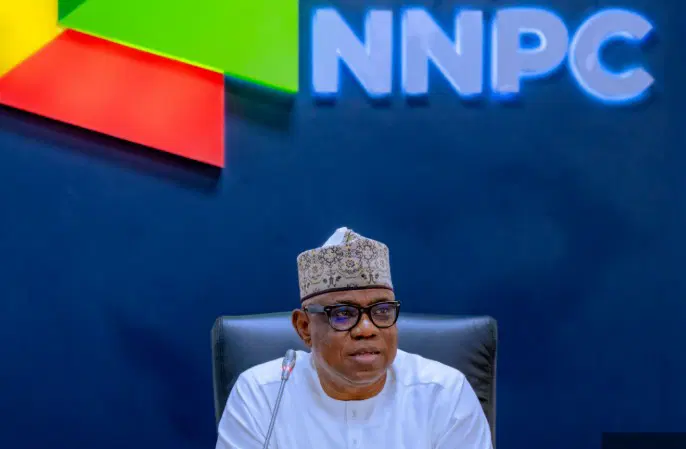
The Group Chief Executive Officer (GCEO) of the Nigerian National Petroleum Company Limited (NNPCL), Bayo Ojulari, yesterday spoke on his findings on the state of the nation’s refineries when he received a delegation of the Petroleum and Natural Gas Senior Staff Association of Nigeria (PENGASSAN), led by its President, Comrade Festus Osifo, at the NNPCL headquarters in Abuja.
He said: “When I resumed, one of the first priorities I focused on was the refinery. To quickly have a quick review to see whether we could quickly fix it. What I found is that we were losing between $300million to $500 million on a monthly basis in the overall refinery. We were pumping about 50,000 barrels of crude to go into the refinery. What was coming out was less than 40 per cent equivalent of what was coming in
“The first thing we then said,” he continued, “was rather than continue to lose, let’s quickly stop and look for a way to put this refinery into a sustainably profitable venture.”
Ojulari, who assumed office on April 2, this year, said the NNPCL was working to revive the moribund refineries to operate at full capacity by adopting the Nigeria Liquefied Natural Gas (NLNG) model which PENGASSAN has also advocated, adding that talks were ongoing to find a viable solution to the refining crisis, ensuring the refineries became a sustainably profitable venture.
He said that the national oil company had concluded a technical review for the three refineries, pointing out that the long neglect and lack of maintenance of the refineries, were the major reasons behind the huge losses recorded from the refineries on a monthly basis, despite the huge investments to make them work
The NNPCL chief, in his conversation with the Senior Staff arm of the oil sector union, said that a lot of money has been spent on these refineries, but however admitted that it’s been very challenging to translate those money into profitability.
He went philosophical, saying part of the reason is – when you have an old car, and you park the car for some time without any greasing and oiling. He added that the Port Harcourt refinery has been difficult to put back because of years of neglect and it’s been difficult when you fix one thing, the other thing is still there.
Turning to PENGASSAN, Ojulari said: “The solution you are proposing (the NLNG model) is the solution we are working on. We’ve now completed technical review of the three refineries, but it’s not just about technical. It’s also about commercial viability, It has to make money. Maybe not a lot, but it should not be making a loss.
“We’ve now completed the commercial review for the Port Harcourt refinery and from that commercial review, we have come to that conclusion that the best way forward is for us to get a true professional refinery company to join us and co-operate with us.
“We’ve been having meetings with potential parties, but we need to find the pathway that will work. We’ve also realised that it was not in the best interest of Nigeria, not in the best interest of NNPCL, that we will continue to put money into a place where we do not have the full ability to fully operationalise. So, when we bring in a true refinery, we can work with them.”
Ojulari, who did not elaborate on the term- ‘a true refinery,’ appealed to Nigerians, contractors, traders and beneficiaries to be patient with the shutdown of the refineries.
In the course of the briefing, the NNPCL chief said his team was facing attacks, but said he will not be deterred. “We are under attack. We will not budge to short-term pressure, as it will not be in the best interest of Nigerians. You cannot drive change without a price, and the transformation is tough,” Ojulari he said, adding that patience will be required from the Nigerian people at large to get to the other side of change, which will benefit Nigeria and her citizens.
He restated his commitment to stay focused in driving the mandate given to the team by President Bola Ahmed Tinubu.
“Tinubu did not put pressure on me to go and do the wrong thing. The baseline was to go and ensure that whatever we’re doing, going forward, sustainably works. There’s no need for us to pretend, there was no negative political pressure for NNPC to just continue to run at a loss, so we decided to freeze on it, and we’ve been working astutely fine.
“My commitment is that when this refinery is reworking, everybody will be back to work but for now, we all need to cooperate and work together to ensure that whatever we put in place is sustainable.”
Ojulari also declared that he is not a politician, saying that he will have to learn a bit more about politics. “I’m not hiding from anybody. I’m not a politician. I will have to learn a bit more about politics, but for me, it is a development plan, and I’m ready to learn.”
The NNPCL boss also raised concerns over threats to his life and those of some members of the company’s management, saying his major “offence” was the reforms he introduced in the oil and gas sector in line with President Bola Tinubu’s directive to revive the country’s ailing refineries. He said some powerful interests were plotting to unseat him, but insisted that he remained focused on ensuring the success of the refinery rehabilitation plan.
Earlier, President of PENGASSAN, Comrade Festus Osifo said the pipelines have been working optimally since Ojulari became the GCEO, leading to an increase in production.
He commended the management of NNPCL for moving beyond addressing the welfare of members.
While seeking answers to the reasons behind the shutdown of the refineries, Osifo noted that PENGASSAN was committed to supporting the NNPCL to stabilise the system which has been bedeviled with so many challenges including non-producing fields, to boost production to 2.6 million barrels per day next year.
Osifo said: “Managing institutions like this and trying to bring about change, we know that there are always ups and downs, which is expected in life. But at PENGASSAN, we assure you that we are solidly behind you, that we will work with you, we will collaborate with you and your team to ensure the stability of the system, because for us, when the system is not stabilised, it has a way of trickling down to our members.
“We will work with you to ensure that the system is stabilised and to ensure that NNPC continuously remains vibrant, the way it has been, and even to take it a notch higher, because today we are doing approximately 1.8 million barrels of crude.
“We believe that with a lot of capacities and experience that will be brought in, we’ll be able to bring about an improvement in our production,” Osifo said.
The tale surrounding the new development with the nation’s refineries, as painted by Ojulari, somewhat runs counter to that of his predecessor, Mele Kyari, who described the reopening of the Port Harcourt Refinery Company in November 2024, as a monumental achievement for Nigeria which signifies a new era of energy independence and economic growth for the country.
In a press release, Kyari said: ” The Nigerian National Petroleum Company (NNPC) Ltd. has fulfilled its pledge of re-streaming the Port Harcourt Refining Company (PHRC), signaling the commencement of crude oil processing from the plant and delivery of petroleum products into the market.
On Tuesday, November 26, 2024, according the NNPCl statement, trucks began loading petroleum products which include Premium Motor Spirit (PMS), or petrol, Automotive Gas Oil (AGO), or diesel and Household Kerosene (HHK), or Kerosene, while other product slates will be dispatched as well.
Speaking during a brief ceremony to mark the commencement of products loading at the Refinery on that Tuesday in Port Harcourt, according the press statement, Kyari described the “commencement of the loadout activities as a monumental achievement for Nigeria which signifies a new era of energy independence and economic growth for the country.
Kyari also expressed deep appreciation to the NNPC Ltd Board of Directors and the entire staff for their support and commitment, which crystallized into the streaming of the refinery. He also commended the contractors for doing a great job in ensuring that the refinery is delivered despite all challenges.
Also, the Chief Executive of the Nigerian Midstream & Downstream Petroleum Regulatory Authority (NMDPRA), . Farouk Ahmed congratulated the NNPC Ltd for the milestone and assured of his agency’s continued support towards the completion of rehabilitation work at the other refineries.
The PHRC rehabilitation project, is an Engineering, Procurement, Construction, Installation & Commissioning (EPCIC) project that is aimed at restoring the refinery to full functionality and renewal. It has achieved over 16 million manhours with zero Loss Time Injury (LTI), the statement said.
Ojulari briefing yesterday is coming barely nine months after the Port Harcourt Refinery was adjudged fit for production by Kyari.
Energy
NMDPRA’s Farouk Ahmed, NUPRC’s Komolafe resign
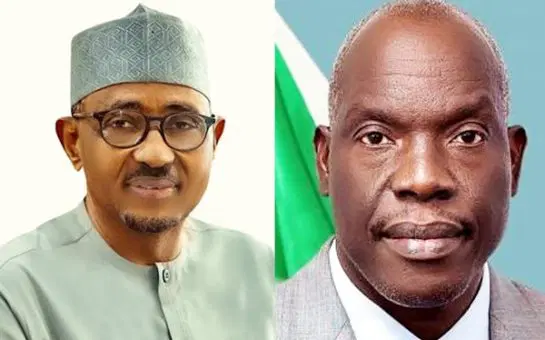
- President Tinubu nominates successors
THE embattled Chief Executive of the Nigerian Midstream and Downstream Petroleum Regulatory Authority NMDPRA Engr. Farouk Ahmed and his counterpart in the Nigerian Upstream Petroleum Regulatory Commission, NUPRC, Gbenga Komolafe, have resigned.
Already, President Bola Tinubu has asked the Senate to approve the nominations of two new chief executives for the NMDPRA and the NUPRC.
A statement by the presidential spokesman, Bayo Onanuga, explained that the President’s requests followed the resignation of the duo.
Both officials were appointed in 2021 by former President Buhari to lead the two regulatory agencies created by the Petroleum Industry Act (PIA).
To fill these positions, President Tinubu has written to the Senate, requesting expedited confirmation of Oritsemeyiwa Amanorisewo Eyesan as CEO of NUPRC and Engineer Saidu Aliyu Mohammed as CEO of NMDPRA.
The two nominees are seasoned professionals in the oil and gas industry.
Eyesan, a graduate of Economics from the University of Benin, spent nearly 33 years with the NNPC and its subsidiaries. She retired as Executive Vice President, Upstream (2023–2024), and previously served as Group General Manager, Corporate Planning and Strategy at NNPC from 2019 to 2023.
Engineer Saidu Aliyu Mohammed, born in 1957 in Gombe, graduated from Ahmadu Bello University in 1981 with a Bachelor’s in Chemical Engineering. He was announced today as an independent non-executive director at Seplat Energy.
His prior roles include Managing Director of Kaduna Refining and Petrochemical Company and Nigerian Gas Company, as well as Chair of the boards of West African Gas Pipeline Company, Nigeria LNG subsidiaries and NNPC Retail.
He also served as Group Executive Director/Chief Operating Officer, Gas & Power Directorate, where he provided strategic leadership for major gas projects and policy frameworks, including the Gas Masterplan, Gas Network Code, and contributions to the Petroleum Industry Act (PIA).
Engineer Mohammed played a pivotal role in delivering key projects such as the Escravos–Lagos Pipeline Expansion, the Ajaokuta–Kaduna–Kano (AKK) Gas Pipeline, and Nigeria LNG Train.

- Above advert placement contains allegations against the erstwhile NMDPRA Chief Executive, Farouk Ahmed
Recall that on Monday, the Dangote Refinery and Petrochemicals accused the NMDPRA led by Farouk Ahmed of undermining its refinery.
The President, Dangote Group, Aliko Dangote, also accused the regulating agency of economic sabotage and urged the government to probe its activities and also probe NMDPRA Chief Executive Officer (CEO), Farouk Ahmed.
He accused NMDPRA leadership of colluding with international traders and oil importers to frustrate local refining through the continued issuance of import licences for petroleum products.
Alleging that Ahmed had been living above his means, Dangote said the bills being picked by the NMDPRA boss raised serious questions about potential conflicts of interest and the integrity of regulatory oversight in the downstream petroleum sector.
Dangote said: “I am not calling for his removal, but for a proper investigation. He should be required to account for his actions and demonstrate that he has not compromised his position to the detriment of Nigerians. What is happening amounts to economic sabotage.”
The business mogul said: “The Code of Conduct Bureau (CCB), or any other body deemed appropriate by the government, can investigate him.
Energy
Dangote alleges sleaze in NMDPRA
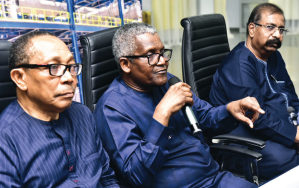
• Industrialist seeks probe of agency
• Petrol to sell for N740 from tomorrow
Dangote Refinery and Petrochemicals yesterday accused the regulating agency of downstream sector of undermining its refinery.
He accused Nigerian Midstream and Downstream Petroleum Regulatory Authority (NMDPRA) of economic sabotage and urged the government to probe its activities.
President of the Dangote Refinery, Alhaji Aliko Dangote, who spoke in Lagos yesterday at a news conference urged the government to also probe NMDPRA Chief Executive Officer (CEO), Farouk Ahmed.
He accused NMDPRA leadership of colluding with international traders and oil importers to frustrate local refining through the continued issuance of import licences for petroleum products.
Alleging that Ahmed had been living above his means, Dangote said the bills being picked by the NMDPRA boss raised serious questions about potential conflicts of interest and the integrity of regulatory oversight in the downstream petroleum sector.
He assured of further fall in the pump price of petrol. He said the product would sell at no more than N740 per litre from tomorrow in Lagos, because of his refinery’s reduction of gantry price to N699 per litre.
He said MRS filling stations would be the first to reflect the new pricing.
Expressing concern over the state of the downstream sector, Dangote said Nigeria’s continued reliance on fuel imports was harming local production and discouraging investment in domestic refining.
He said import licences covering approximately 7.5 billion litres of PMS had reportedly been issued for the first quarter of 2026, despite the availability of significant domestic refining capacity.
According to him, modular refineries are already struggling under the current policy environment and on the brink of extinction, while the persistent issuance of import permits further weakens the sector.
Dangote said: “I am not calling for his removal, but for a proper investigation. He should be required to account for his actions and demonstrate that he has not compromised his position to the detriment of Nigerians. What is happening amounts to economic sabotage.”
The business mogul said: “The Code of Conduct Bureau (CCB), or any other body deemed appropriate by the government, can investigate him.
He described the downstream petroleum sector as being under severe strain, alleging the presence of entrenched interests that profit from fuel imports at the expense of national development.
“There are powerful interests in the oil sector. It is troubling that African countries continue to import refined products despite long-standing calls for value addition and domestic refining. The volume of imports being allowed into the country is unethical and does a disservice to Nigeria,” he added.
Dangote stressed the need for a clear separation between regulatory oversight and commercial interests, warning that allowing traders to influence regulation would undermine the integrity of the sector.
“The downstream sector must not be destroyed by personal interests. A trader should never be a regulator. Forty-seven licences have been issued, yet no new refineries are being built because the environment is not conducive,” he said.
He maintained that Nigerians would ultimately benefit from local refining, fuel importers incur losses. Dangote said he would not relent in ensuring that Nigerians enjoy the benefits of domestic refining, noting that the company was working around the clock to ensure that recent reductions in the gantry price were fully reflected at the retail level.
“From Tuesday (tomorrow)”, he said, “all MRS filling stations would begin selling PMS at prices not exceeding N740 per litre, starting in Lagos.”
He added that the refinery had reduced its minimum purchase requirement from two million litres to 500,000 litres to enable more marketers, including members of the Independent Petroleum Marketers Association of Nigeria (IPMAN), to participate.
“So, if you come to the refinery today, you will get PMS at N699 per litre,” he said.
Dangote explained that despite frustration and sabotage, the refinery would deploy its Compressed Natural Gas (CNG) trucks in the coming days and was prepared to procure additional units beyond the initial 4,000 if required to sustain affordable pricing nationwide.
Responding to complaints from oil importers that the recent price reduction would result in losses, Dangote said the refinery was established primarily for the benefit of Nigerians.
“Anyone who chooses to continue importing despite the availability of locally refined products should be prepared to face the consequences,” he said.
He also highlighted quality differences, noting that products supplied through MRS and other off-takers from the refinery were straight-run fuels, unlike blended products imported from overseas markets.
“Nigerians have a choice to buy better quality fuel at a more affordable price or to buy blended PMS at a higher rate. Importers can continue to lose, so long as Nigerians benefit,” he added.
Dangote said the refinery was driven more by legacy than profit, noting that he could have invested the 20 billion dollars elsewhere if financial gain were his sole objective.
He reaffirmed the plan to list the refinery on the Nigerian Exchange to allow Nigerians to own shares in the facility.
“We want every living Nigerian to have the opportunity to benefit, no matter how small their holding. If the market takes 55 per cent and I retain 45 per cent, I am satisfied,” he said.
Dangote explained that discussions were ongoing with the Securities and Exchange Commission (SEC) to enable Nigerians to purchase shares in naira while receiving dividends in dollars.
Dangote accused the NMDPRA of misrepresenting the refinery’s capacity by publishing off-take figures rather than actual production levels.
“We have the capacity to meet local demand, and we have sufficient refined products in stock. But to keep prices high, imports are deliberately encouraged,” he said, adding that attempts were being made to push the refinery into exporting products only for them to be re-imported into Nigeria at higher prices.
“This refinery is for Nigerians first, and I am not giving up,” he said.
Dangote also explained that the refinery imports an average of 100 million barrels of crude oil annually from the United States, a figure expected to rise to 200 million barrels following expansion, due to insufficient domestic crude supply.
He added that the refinery also sources crude from Ghana and other countries, while exporting jet fuel and gasoline to the United States (U.S.).
Dangote further alleged that domestic refiners are forced to buy Nigerian crude at premiums of up to four dollars per barrel from the trading arms of international oil companies, placing them at a competitive disadvantage.
He called on the government to ensure crude oil taxes are assessed based on actual transaction values, warning that the current system allows under-declaration and revenue losses.
Enterprenuership
Sahara Group Foundation’s Community Impact Project Drives Economic Transformation in Africa
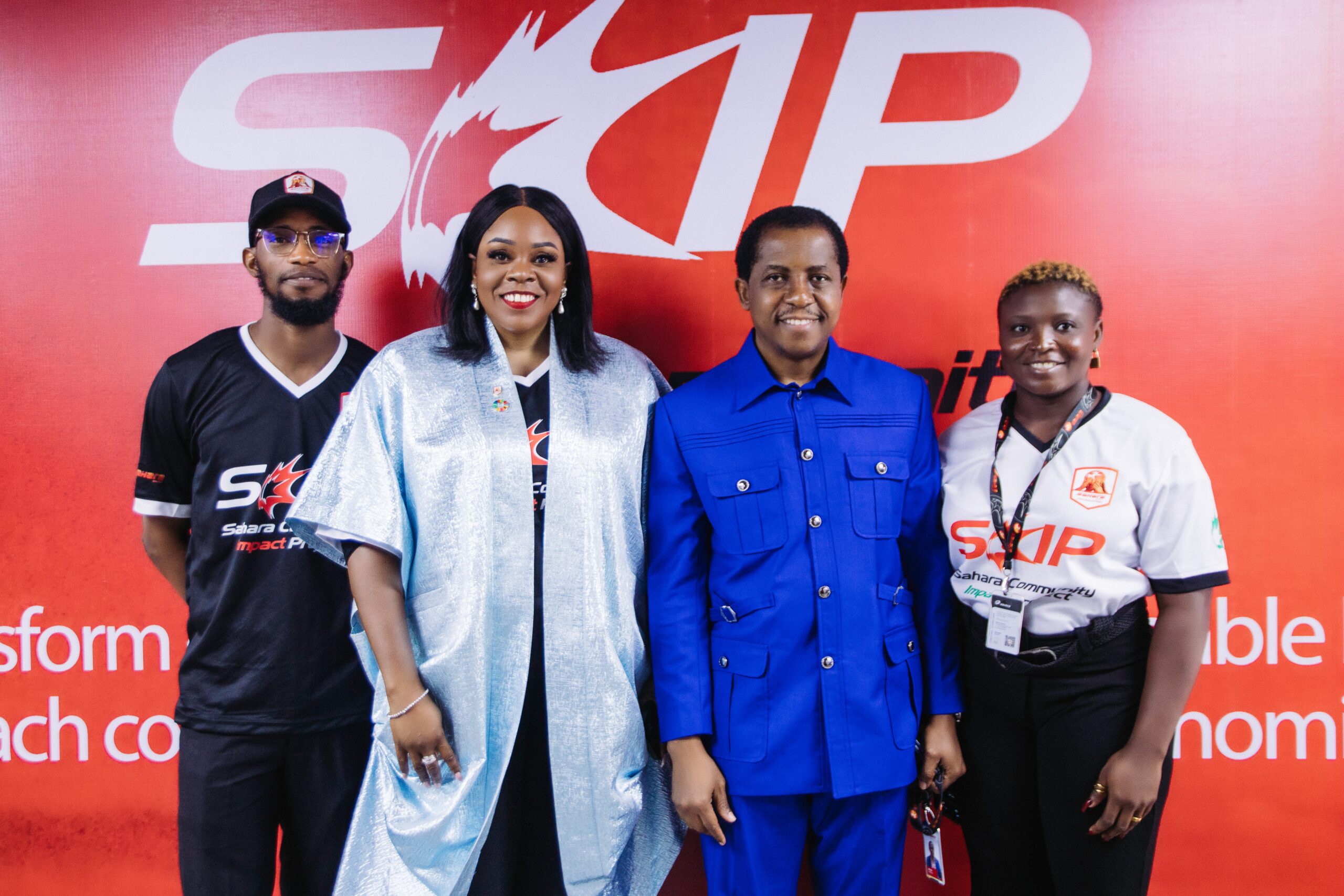
By Olamide Akintunde
Sahara Group Foundation, the social responsibility division of international energy conglomerate, Sahara Group, has launched the Sahara Community Impact Project (SCIP), an initiative designed to accelerate economic transformation across African communities. This bold step underscores Sahara’s unwavering commitment to fostering inclusive growth, sustainability, and innovation through strategic community partnerships.
Director, Sahara Group Foundation, Chidilim Menakaya, told media stakeholders that the initiative focuses on establishing community business hubs that leverage local economic niches to foster entrepreneurship and empower small businesses. “From agriculture, trade, craftsmanship, services, to emerging innovation, Sahara Group Foundation is looking to ultimately build specialised regional hubs with export potential by unlocking local talent and enterprise potential, “she said.
Menakaya said SCIP hubs will serve as engines for job creation, and long-term business sustainability, leveraging Sahara’s EXTRApreneurship model to empower individuals and reduce resource waste.
“At Sahara Group Foundation, we define impact as the ability to drive real, sustainable transformation in the lives of individuals and the communities we serve. SCIP embodies this vision by creating business hubs that not only empower local entrepreneurs but also propel economic resilience and innovation across Africa.”
Bethel Obioma, Head, Corporate Communications, Sahara Group said said SCIP would pilot in Nigeria and ultimately become the template for replicating similar interventions to kick-start “community-led economic transformation across Africa.”
“SCIP is more than a project; it is a commitment to building sustainable communities through capacity building, job creation, and strategic partnerships. By reducing resource waste and improving production efficiency, Sahara is laying the foundation for a future where communities can compete globally while preserving local identity.”
SCIP officially kicks off in January 2026. Interested communities or entrepreneurs can submit applications through Sahara Group Foundation’s official channels. These applications will be reviewed for alignment with SCIP’s parameters, and selected participants will undergo training and mentorship to strengthen their business models. SCIP is guided by an in-built assessment procedure that ensures sustainability and measurable impact.
The Community Business Hubs will provide shared processing and production facilities to reduce costs, improve product quality, offer training and capacity-building in entrepreneurship, financial literacy, branding and digital skills, and strengthen market access through collective visibility and structured value chains. The hubs will also enhance access to financing via partnerships with financial institutions.
Urging media partners, community leaders, entrepreneurs, and the public to join in amplifying the transformative initiative, David Ayinde, Project Lead Sahara Group foundation, said the community referral call will go live in Q1 2026. “Through sustained media reports and collaborative participation and support from all stakeholders, we envision SCIP becoming a beacon of sustainable development, empowering communities to grow from within”.
For more information about SCIP and the EXTRApreneurship initiatives of Sahara Group Foundation, please visit: www.saharagroupfoundation.org.
-

 Art & Life9 years ago
Art & Life9 years agoThese ’90s fashion trends are making a comeback in 2017
-

 Entertainment8 years ago
Entertainment8 years agoThe final 6 ‘Game of Thrones’ episodes might feel like a full season
-

 Art & Life9 years ago
Art & Life9 years agoAccording to Dior Couture, this taboo fashion accessory is back
-

 Business9 years ago
Business9 years agoThe 9 worst mistakes you can ever make at work
-

 Entertainment9 years ago
Entertainment9 years agoThe old and New Edition cast comes together to perform
-

 Sports9 years ago
Sports9 years agoPhillies’ Aaron Altherr makes mind-boggling barehanded play
-

 Entertainment8 years ago
Entertainment8 years agoMod turns ‘Counter-Strike’ into a ‘Tekken’ clone with fighting chickens
-

 Entertainment9 years ago
Entertainment9 years agoDisney’s live-action Aladdin finally finds its stars


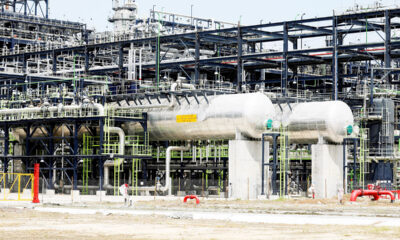

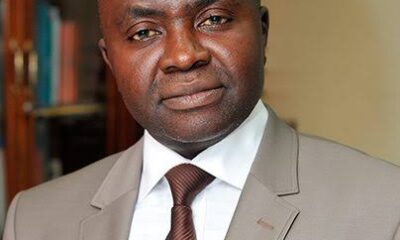

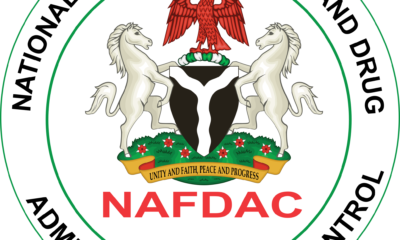

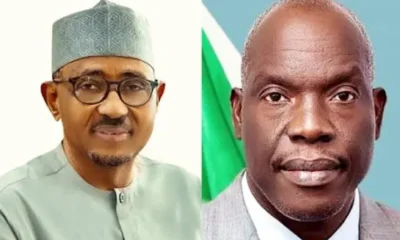





zoritoler imol
September 27, 2025 at 11:07 pm
Its like you read my mind! You appear to know a lot about this, like you wrote the book in it or something. I think that you could do with some pics to drive the message home a bit, but other than that, this is wonderful blog. A fantastic read. I will definitely be back.